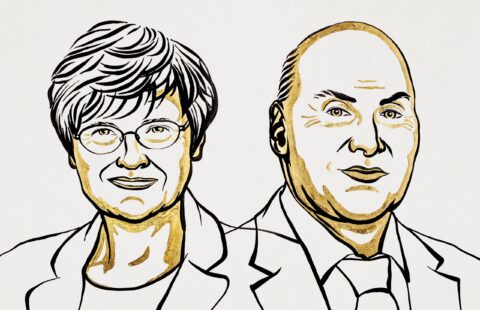 Mary Brunkow, Fred Ramsdell and Shimon Sakaguchi, winners of the Nobeld Prize for Medicine 2025. © Nobel Prize Outreach
Mary Brunkow, Fred Ramsdell and Shimon Sakaguchi, winners of the Nobeld Prize for Medicine 2025. © Nobel Prize Outreach
On Monday October 6, the Nobel Prize for Medicine was awarded to American scientists Mary E. Brunkow and Fred Ramsdell, and to Shimon Sakaguchi of Japan, for their work on immune system regulation. Brunkow and Fred Ramsdell, and Japan’s Shimon Sakaguchi, for their work on immune system regulation.
The Nobel committee rewarded them “for their groundbreaking discoveries on peripheral immune tolerance”. In particular, they identified regulatory T cells, or Tregs, the guardians that prevent immune cells from attacking the body’s tissues. The committee emphasizes that these discoveries “have opened up a new field of research and fostered the development of innovative treatments, notably for cancer and autoimmune diseases”.
“Regulatory T cells are immune system cells responsible for calming excessive immune reactions, which is essential for avoiding autoimmune diseases or excessive inflammation,” explains Magali Irla, Inserm researcher at the Marseille-Luminy Immunology Center. “But in cancer, this function can backfire: Tregs can block the action of immune cells that should be destroying cancer cells. By accumulating in tumors, they create an environment that protects the cancer and promotes its progression”.
This is why their discovery has led to the development of numerous cancer therapies that specifically target them. “The aim is to reduce their action in the tumor, so as to boost the immune system’s ability to attack cancer cells,” adds Nicolas Fazilleau, Inserm Research Director at the Institut Toulousain des Maladies Infectieuses et Inflammatoires. Tregs are also being studied in other treatments, “notably to prevent transplant rejection or to calm autoimmune diseases, this time using their natural ability to slow down the immune system”, concludes Nicolas Fazilleau.
These contents could be interesting :


